When your country is in conflict
‘I couldn’t sleep or work on my assignments’
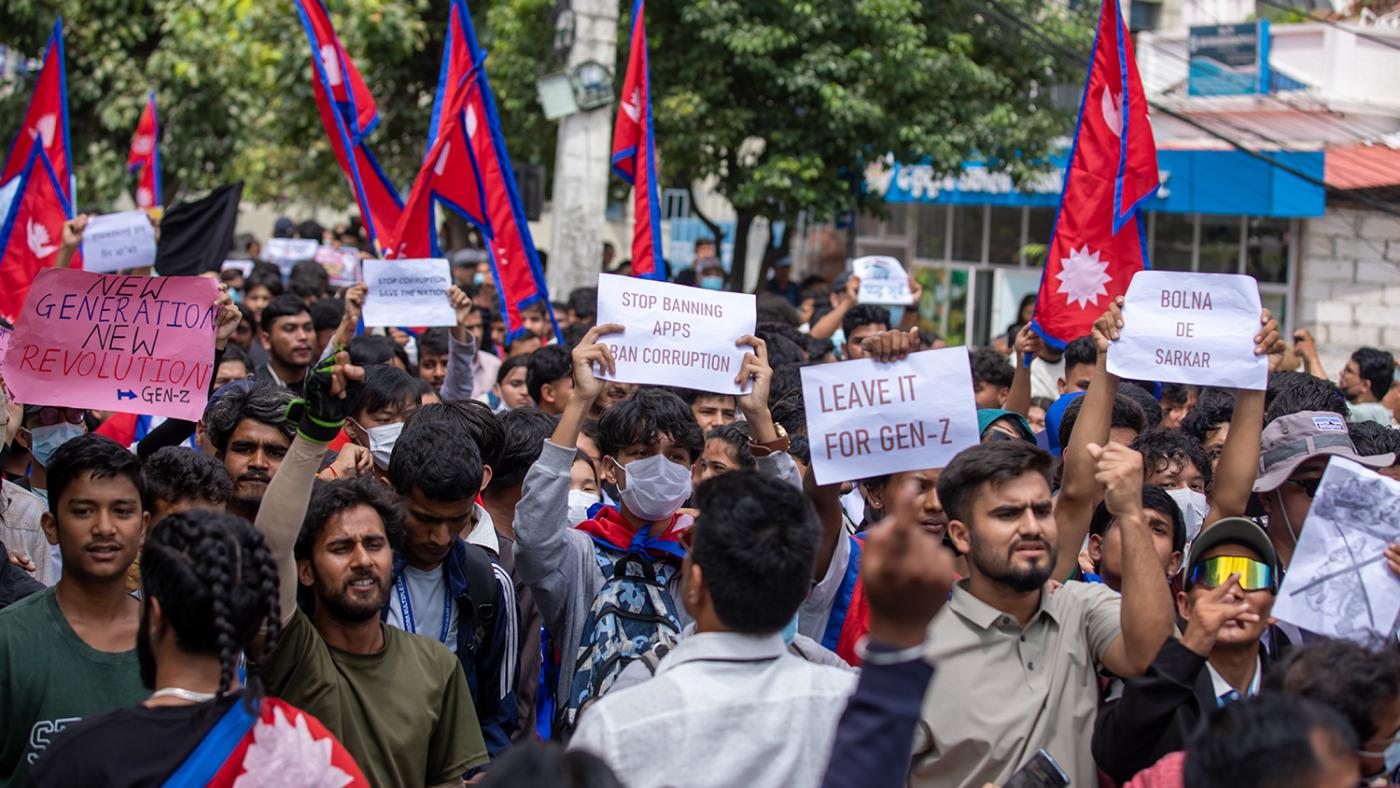
Never completely peaceful
Tensions between Pakistan and India have risen again in the Kashmir region, which is disputed by both countries since 1947. In April, a major militant attack in the India-administered part of Kashmir killed 26 people, prompting India to accuse Pakistan-based groups of orchestrating the assault. This led to a surge in cross-border firing along the Line of Control, the de facto border that divides the region.
Civilians living near the Line of Control are caught in the middle of a bloody cycle of militant attacks and retaliatory strikes. But that’s not all: in late September, thousands of people took to the streets in Pakistan-administered Kashmir to demand basic human rights, control over resources, and an end to the colonial rule by Pakistan. The clashes with the police left at least ten people dead.
“It has never been completely peaceful there. Even something as simple as either country losing a cricket match can lead to incidents of fighting on the border, leaving Kashmiris devastated,” says Khizar Ahmad. His house is 30 kilometres away from the Line of Control. A lawyer, he is pursuing a Master’s in Law & Technology at UU after getting a Utrecht Excellence Scholarship.
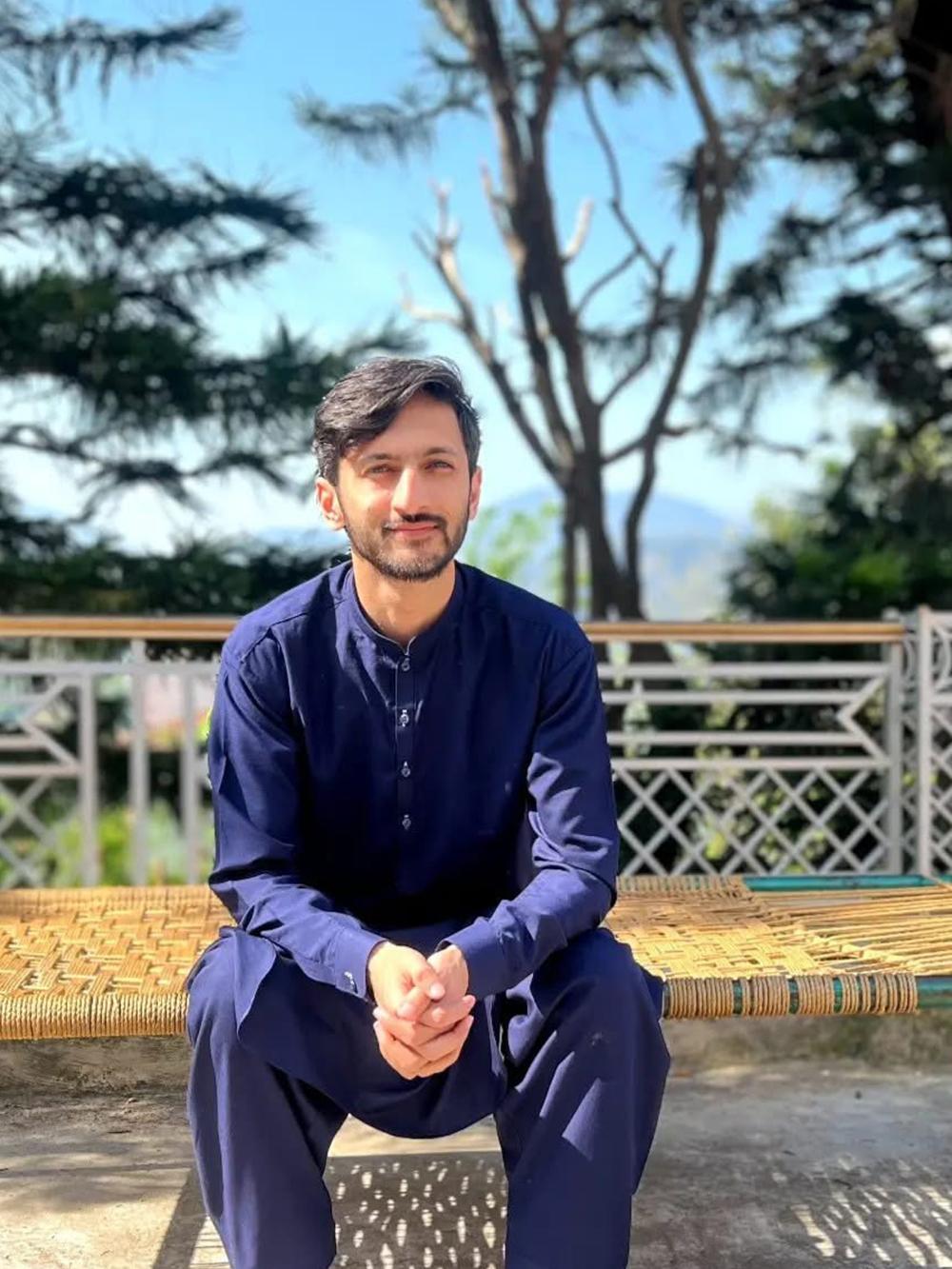
“I didn't know if they were alive or not”
“I never had anxiety in my life, but during the protests in September, I was literally glued to the screen, checking the news all the time. There was no Internet there, so I couldn’t talk to my family for five days. I didn’t know if they were alive or not.” He couldn’t sleep or concentrate.
He went to Brussels to protest the Internet shutdown alongside the Kashmiri diaspora in the Benelux region. “In hindsight, I realised that my dissent against the Pakistani establishment could have had personal repercussions if reported. But I just wanted the Internet ban to be lifted, so I could talk to my family.”
The Internet ban was lifted after a while, and he managed to reach his family. They are safe.
Khizar supports the protests and thinks that Kashmir should be independent and given the right to self-determination. “A lot of Kashmiris have realised that our safety and well-being are not connected to either of these states, and they are just fed up with both.”
At UU, not everyone knows about Kashmir. Some students are puzzled when Khizar introduces himself and says where he is from. They think of cashmere wool. Even so, he says his programme has a “high ratio of people who are sensitive to this crisis” and supportive of him. “My friends messaged me to ask how things were, if my family were safe. It didn’t change my mental health, but it meant a lot. I really appreciated the consideration and affection.”
Khizar is a busy student. He has joined student associations, sports associations, volunteered and taken extra courses. “Everything I do is rooted in this fight for freedom. When I walk the extra mile, or when I try to get better grades, it’s all connected to where I am from. I have to be successful to make a difference in the lives of as many people as I can.”
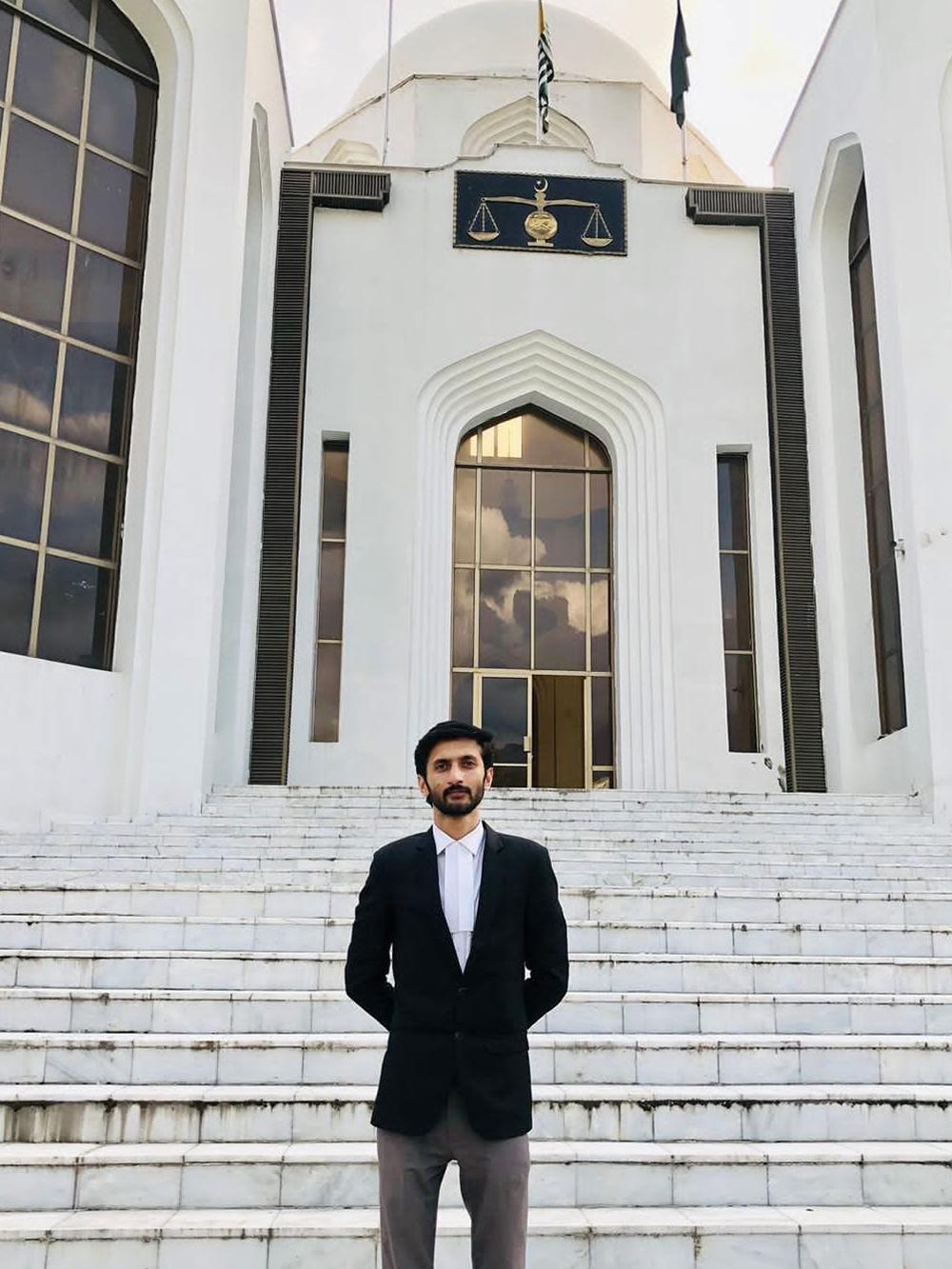
"Everything I do is rooted in this fight for freedom"
The conflict has also driven him to human rights and international law. He wanted to denounce the war crimes in his region and the effects of war, such as poverty, instability and illiteracy. “The first-hand experience of it all also makes me think of anybody who suffers from this anywhere in the world.” Khizar dreamt of working for the International Criminal Court (ICC) or the International Court of Justice (ICJ); hence, his wish to study in the Netherlands. He has since grown disillusioned with multilateral institutions. “Neither ICJ nor ICC nor the UN. Nobody’s going to save Kashmir.”
He still aims to alleviate global suffering as much as he can, which is why he has transitioned to Law and Technology. “The field’s growing relevance offers broader avenues to shape policy and practice, and engage with global systemic inequalities, from poverty and conflict to barriers in education.”
Like a tsunami
Over 70 people were killed and 2,000 more were injured in Nepal last month, when the police clashed with anti-corruption protesters. The protests were triggered by the government’s decision to ban 26 social media networks, a move critics qualified as an attempt to silence anti-corruption voices. Many of the demonstrators were high school and university students identifying as Gen Z on their banners.
In the capital, Kathmandu, the protesters set fire to the Parliament, the Supreme Court, and the head offices of major political parties. The homes of several politicians were also vandalised. Elsewhere, over 300 local government offices were damaged. As a result, the government was toppled and the country fell into a political vacuum in a matter of days.
Nabin Devkota had only been in Utrecht for two weeks when the protests erupted in his home country. He is here for a Master’s in Law and Economics, also on a Utrecht Excellence Scholarship. “For two or three days, I was constantly checking news updates and talking to friends and family. My country had fallen into this state of lawlessness or statelessness, and I was worried about its immediate future”.
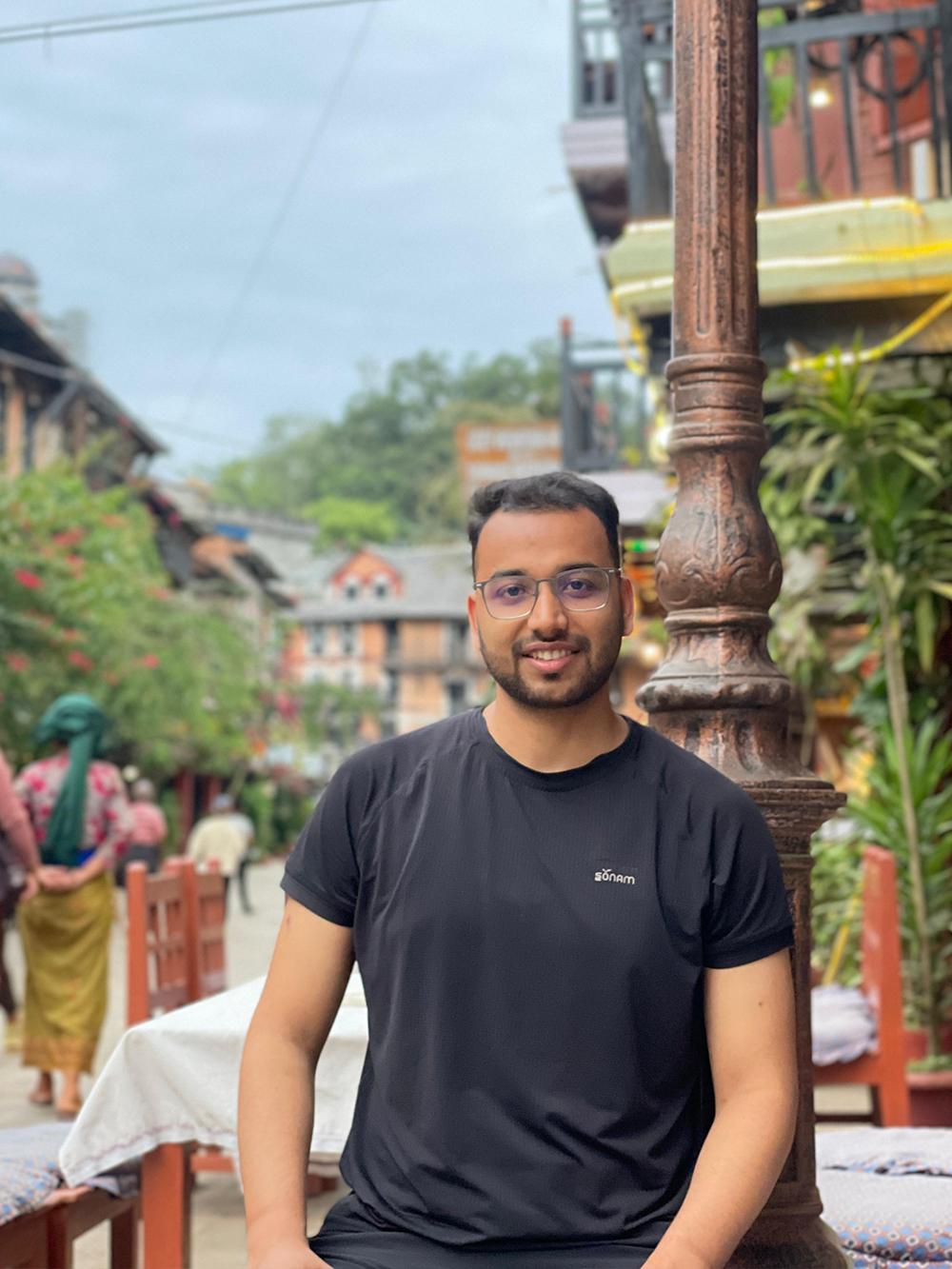
"For a few days, everybody was talking about Nepal"
“I couldn’t sleep well or complete my reading assignments, so I was totally lost in class. I was already struggling to adapt to the Dutch educational system, which is so different from what I was used to. Being emotionally disturbed on top of that made it really difficult to have a meaningful participation in class,” he recollects.
“No one had predicted this. It came like a tsunami. The uprising wasn’t planned; it was a reaction. People were just expressing their dissatisfaction. But then the police fired, and 19 students were killed.” Political dissent then turned into national fury and physical chaos.
A new interim government has since taken office, and elections have been scheduled for March 5. The situation in Nepal is not exactly stable, but the violence has subsided, and Nabin has managed to recover his concentration. “After a while, I had to tell myself that this is not the way to go. I need to focus on my studies. I am not in a position to change anything in Nepal at the moment.”
He doesn’t know any other Nepali student at UU. “I think I’m the only one,” he says. But that’s not an issue to him as he is “always” in touch with friends back home. “Besides, I can make Nepali friends all my life. I’m here to meet an international community.”
Speaking of that community, he also appreciates how supportive they were. “I didn’t expect many people to know much about my country, but, for a few days, everybody was talking about Nepal. They were not very well informed, but they had seen some videos and memes about it, and asked me how I was. Many people, including teachers, were concerned. I had the opportunity to explain what was going on, which was nice.”
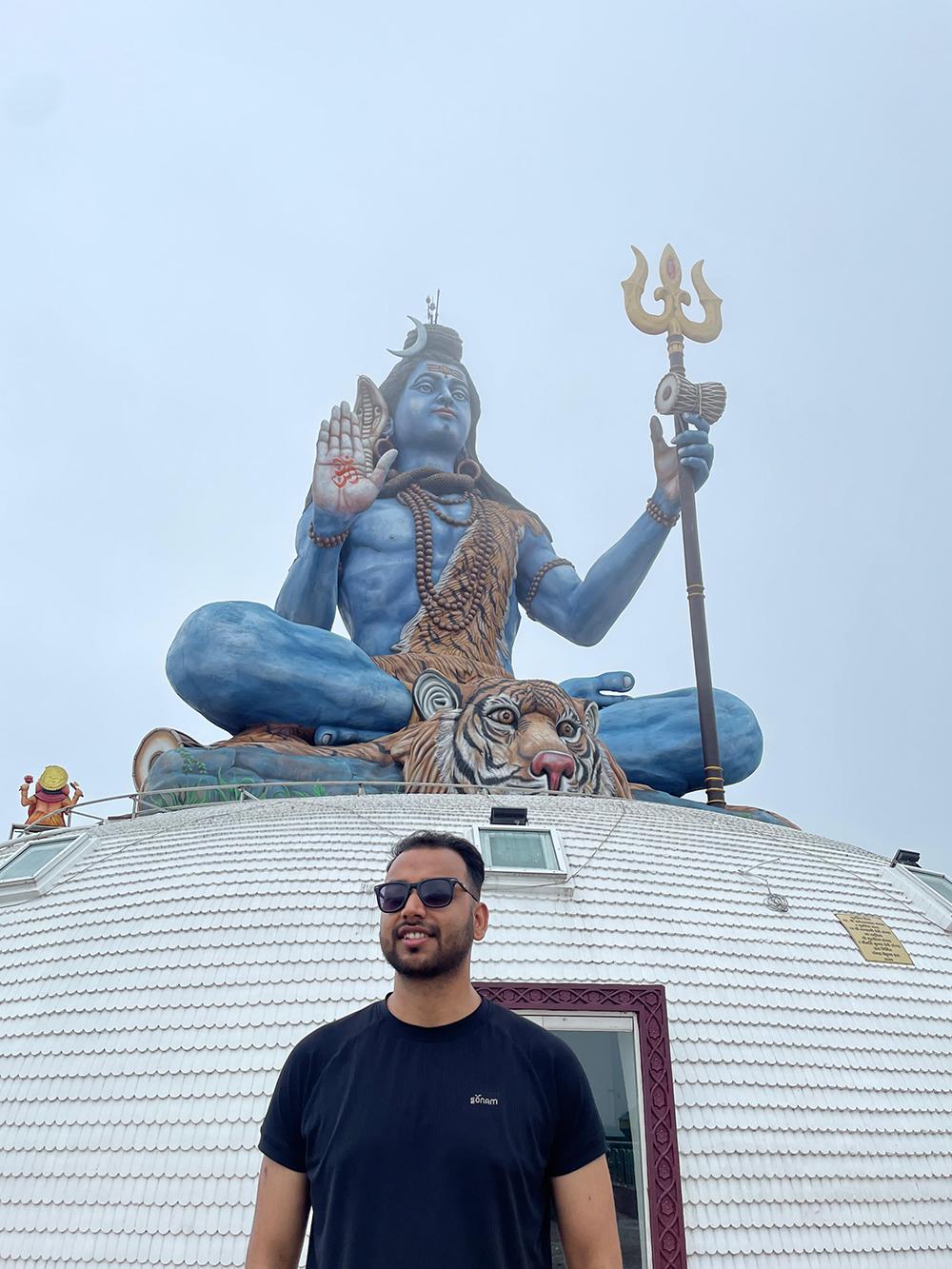
"All the courts have been burned down and many lawyers are out of a job"
Nabin’s family is safe. However, the law firm where he used to work in Kathmandu was completely destroyed, and his lawyer friends are without a stable income. Some have lost their jobs. “All the courts were burned down, so it will take a while for them to reopen.”
This puts him under unexpected pressure. When Nabin decided to study in Utrecht, he was open about his future. He could either return to his legal practice in Nepal or try to find a job in the Netherlands. “I was like: ‘Let’s see what life throws at me, I’m open to all possibilities!’”
“Now, the complexities of the choice have changed, and there is more pressure to stay here,” he says. “I think things will be okay in Nepal in ten months, when I graduate. But you never know. We are not sure if the elections will happen, and various political parties are in a tussle with each other.”
Comments
We appreciate relevant and respectful responses. Responding to DUB can be done by logging into the site. You can do so by creating a DUB account or by using your Solis ID. Comments that do not comply with our game rules will be deleted. Please read our response policy before responding.